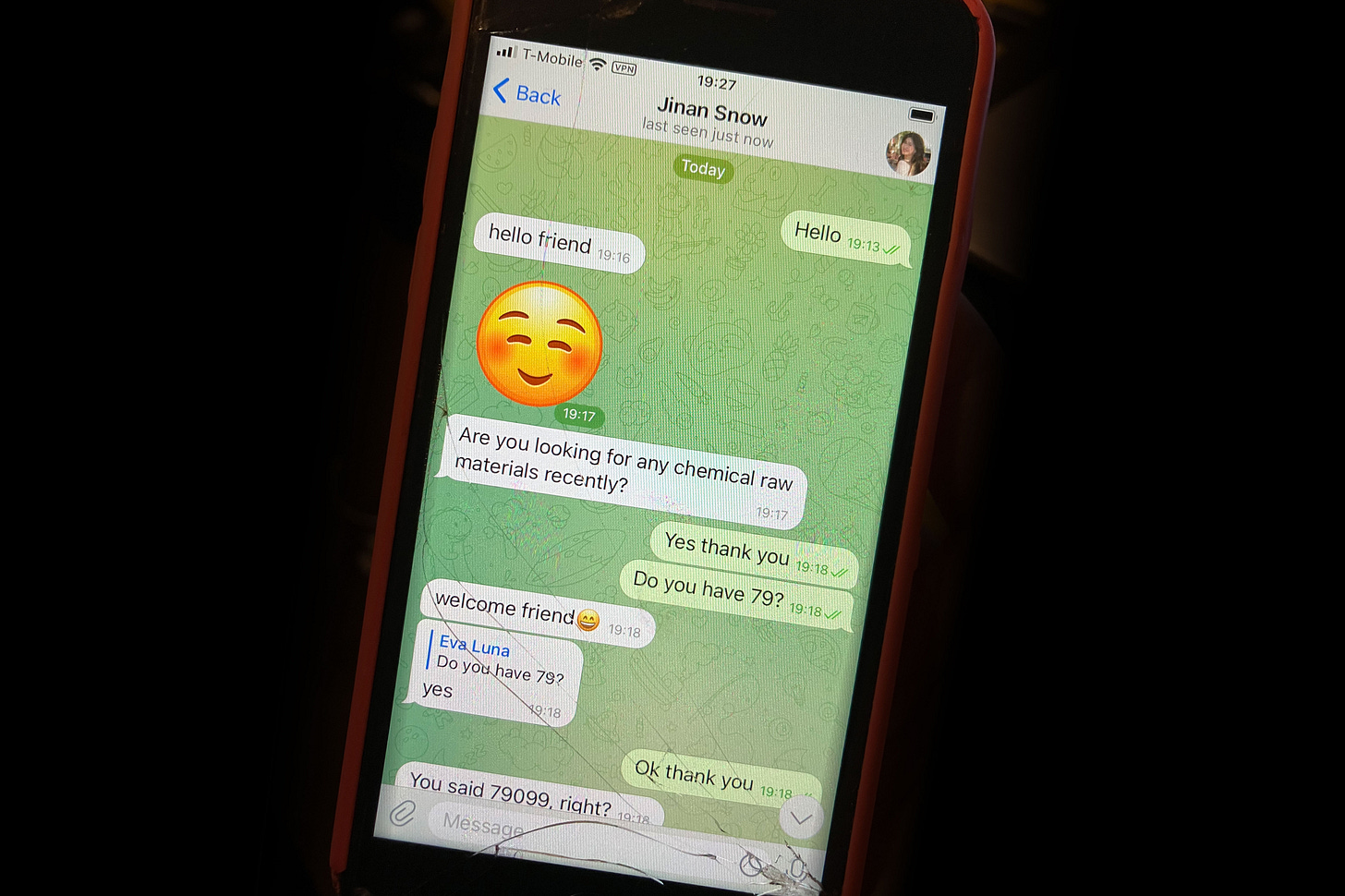Reporters at Reuters ordered $3,600 of fentanyl precursors online, enough to make $3M of fentanyl
The supply of fentanyl is effectively infinite.
Reporters from Reuters bought $3600 worth of fentanyl precursor chemicals online and had them shipped to the US and Mexico, to demonstrate how easy it is to do.
The core precursors Reuters bought would have yielded enough fentanyl powder to make at least 3 million tablets, with a potential street value of $3 million – a conservative estimate based on prices cited by U.S. law enforcement agencies in published reports over the past six months.
The total cost of the chemicals and equipment Reuters purchased, paid mainly in Bitcoin: $3,607.18.
They estimate a street price of just $1 per pill. Even if that’s a ‘wholesale’ street price, it’s stunningly cheap.
Politicians in the US are attempting to crack down on the fentanyl supply through pressure on China and Mexico. There is no indication that this has any chance of working and the problem is trending in the opposite direction— precursor supply is becoming more available and harder to trace.
“The game is different now,” said Christopher Landberg, deputy assistant secretary in the U.S. State Department’s Bureau of International Narcotics and Law Enforcement Affairs. The supply chain is “more difficult to track, it’s more difficult to go after,” and fentanyl itself is “so much more deadly,” he said.
Most of the precursors have common and legitimate uses in other industries, making the challenge even more daunting. Not only is manufacturing fentanyl easy, but smuggling it is even easier— fentanyl is 40X smaller than heroin.
The Golf Ball Problem
I’ve written before about ‘The Golf Ball Problem’ - you can fit 8,000 doses of fentanyl inside a single golf ball and 37,500 in a travel toothpaste container.
From a policy perspective, we have to assume that the supply of fentanyl is effectively infinite and very low cost.
Failure of the drug war to stop drug access is nothing new, but it’s still worth remembering whenever we hear about new anti-smuggling efforts. Since we can’t stop people from getting opioids, we have give people a way to want them less. That means better medications to reduce cravings and interrupt addiction.
While the United States and Canada have far higher opioid overdose death rates than other countries, Europe and other parts of the world should be worried too. The EU has been largely fentanyl-free because of a steady supply of heroin, but that could change quickly. An recent Taliban ban on poppy production in Afghanistan could could lead to a surge in fentanyl in the EU.
Solving addiction at the level of craving and dependence is the only realistic long-term solution for the world.




